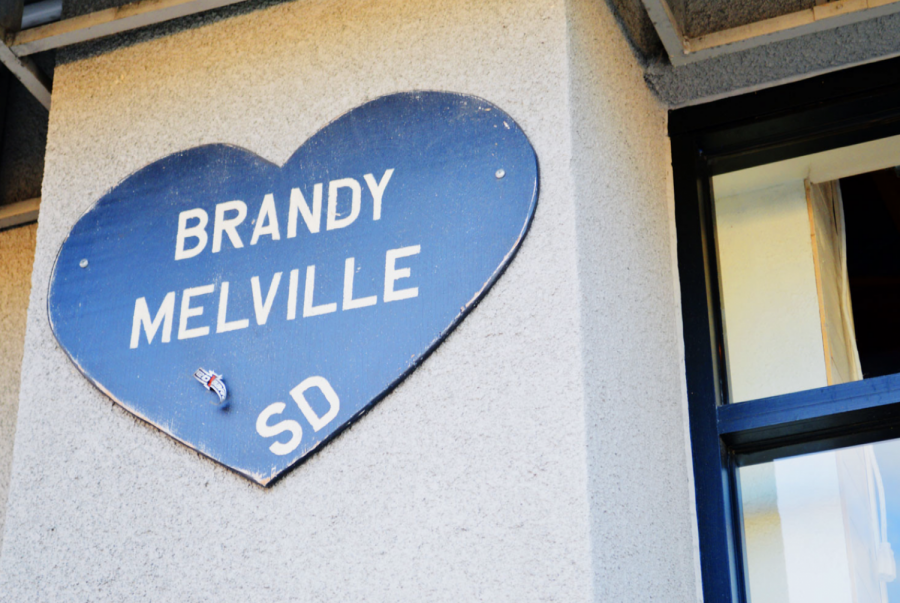Toxic Culture Behind Brandy Melville Uncovered
October 26, 2021
Recent reports from Business Insider exposed an allegedly exploitative and discriminatory culture within Brandy Melville, thick with sexual abuse, antisemitism, and racism. According for former employees, the toxic culture originates from executives, including C.E.O Stephan Marsan, accused of perpetuating discrimination throughout the company’s 94 stores.
Brandy Melville, a European fast-fashion chain, is a cult favorite among young teenage girls. Its exclusive “one-size-fits-all” policy and lack of diversity have amassed wide criticism, as the thin, blonde, and white trope among Brandy Melville’s campaigns has long irked shoppers. However, amidst the disapproval, its casual basics and Pinterest aesthetic has charmed its way into mainstream fashion. Now, as alleged reports of sexual assault and discrimination surface, it seems the end of Brand Melville’s reign looms ahead.
According to Input Magazine, Stephan Marsan and his fellow executives frequently exchanged racist and antisemitic humor in a group chat called “Brandy Melville gags.” Screenshots reveal the disturbing references and jokes that were sent, with one including an edited photo of a Nazi leader captioned “Nobel Peace Prize for barbecue.” One message even showed a skeletal woman in her underwear, wearing a bright sash that stated “Miss Auschwitz 1943.” Another involved a picture of the show “Happy Days,” with the caption saying “there were no black people in this show-that’s why it was called Happy Days.” Multiple pornographic and explicit images were also commonly shared in the group chat.
According to the New York Post, Marsan would routinely demand full-body pictures of young girls—often in minimal clothing—before permitting store managers to hire them. Marsan kept requesting these photos even after the girls were hired, supposedly to follow new fashion trends. An employee’s photo and physique dictated her salary, as a more attractive employee earned more. Marsan and his fellow executives would sometimes come by the store and ask girls to model outfits in front of them. Some employees even went topless, believing that if they did so, their pay would greatly increase.
Screenshots of messages even show Marsan dismissing applicants because of their appearance. According to Former Senior Vice President Luca Rotondo, as quoted in Insider, Marsan frequently made racist remarks towards employees, saying that a store was only “hiring pieces of shit” when a girl with a darker complexion was hired. A former employee recounted the racist separation of employees at one Brandy Melville store, as black employees were stationed in the storeroom during busy hours and usually were the first ones to be replaced when a white girl was hired. “If she was black, if she was fat…he didn’t want them in the store,” Rotondo told Insider.
Marsan was allegedly fixated on the image of Brandy Melville and its employees, going to great lengths to employ workers who embodied the exclusivity of the brand. According to The Mic, Marsan and his fellow executives would watch from an upraised area to study shoppers at the New York flagship store. When they spotted someone with the “Brandy Melville” look, they would push a button which notified the cashier to ask for the girl’s photo for recruitment purposes. Marsan was allegedly adamant over the types of shoppers Brandy Meville would boast as he didn’t want black or overweight women to wear his clothes. Marsan’s preferred consumer demographic consisted of “good-looking rich little girls” because they were “nice and delicate.”
On a particular day in 2013, Marsan stopped by a Brandy Meville store and told everyone to throw out everything but the three smallest sizes. And from that day forward, no clothing sold in Brandy Melville was ever above a size 4. Many argue that their smaller clothing caters to skinnier people just like plus-sized clothing caters to larger people. “There are a variety of body types and Brandy Melville only caters to the smallest size, essentially excluding those who are even average size…like [even] their body is too large to wear trendy clothing,” Gaby Beck (’22) said. Brandy Melville’s unattainable sizes still demonstrate society’s rigid beauty standards, and the brand makes its message even more harmful by broadcasting these standards to younger audiences through its teenage appeal. The company’s influence extends to over 15 countries. And despite Brandy Melville’s previous controversial hiccups, it still seems that the brand’s influence persists. With this recent controversy and the entrance of more inclusive brands—like Aerie and SavagexFenty—into the marketplace, who knows how long Brandy Melville will be able to retain its cultural impact? Only time will tell.


















































































































































